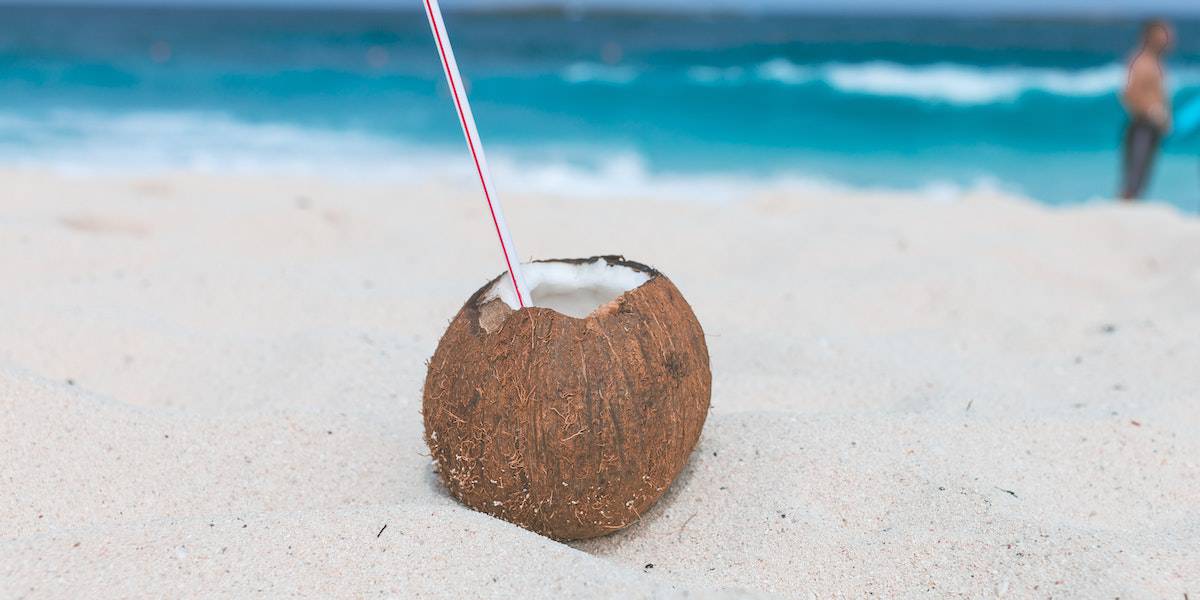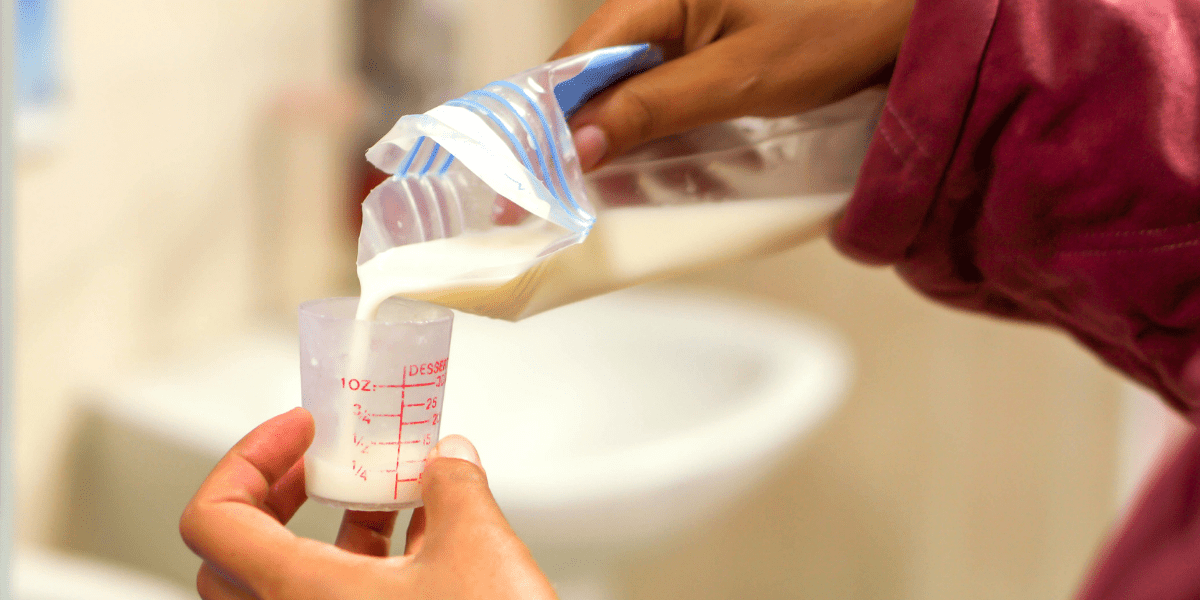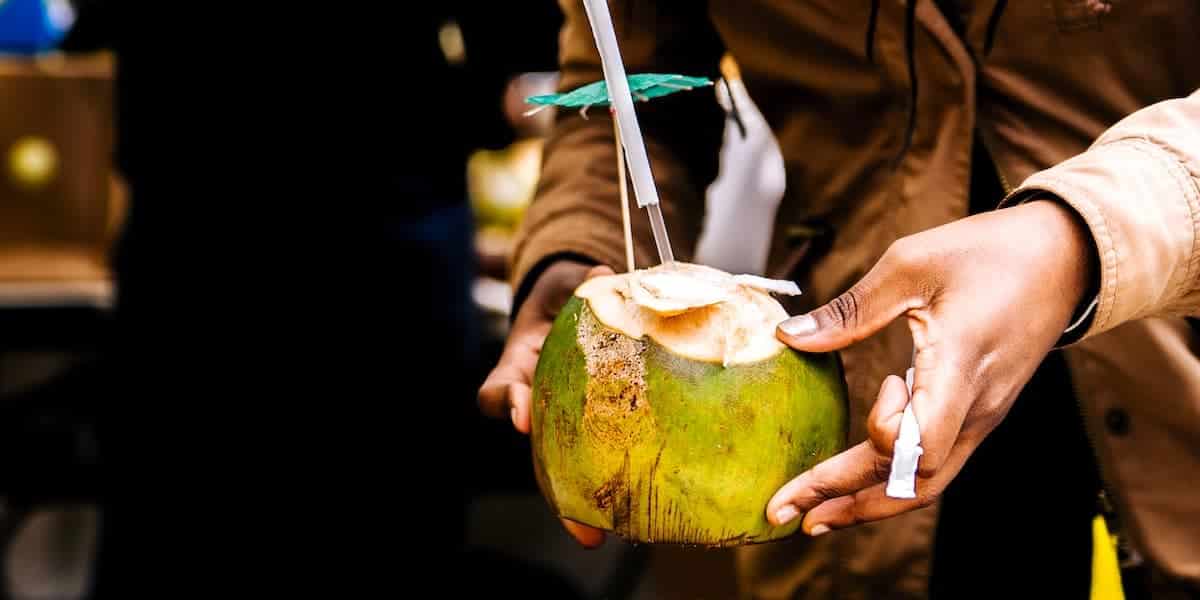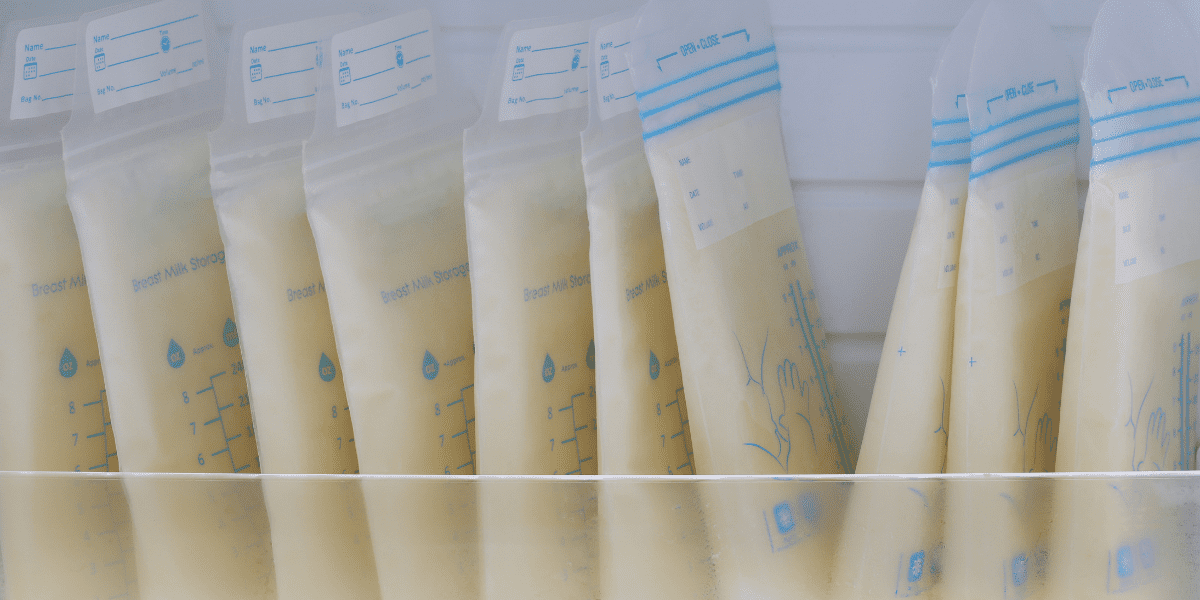Breastfeeding can be challenging enough without having to deal with the trials after giving birth. Making sure you are producing enough milk to feed your baby is a skill that all breastfeeding mothers need to learn.
Breastfeeding requires patience and time to get right. Even those who have breastfed before may find with each baby, the experience can vary. The advice out there can certainly leave some mothers overwhelmed.
However, there is one simple piece of advice that may help some mothers increase their supply, and that is drinking coconut water. Breastfeeding creates a wonderful bond between mother and baby, which results in many nursing mothers searching for quick and convenient ways to increase their supply.
So, let’s look at why coconut water could potentially help you in increasing your milk supply.
As an Amazon Associate, I earn from qualifying purchases. The links below may be affiliate links. Please read my disclosure policy for more information.
Is coconut water safe to drink while breastfeeding?

To date, there have been no conclusive studies to prove coconut water is unsafe for lactating mothers.
However, most lactation specialists consider it to be safe to drink and a healthy alternative to sugary drinks. It is also a nice change from plain water, which can get a little boring after a while.
It has many nutritional benefits too, making it a fantastic choice, not just for nursing mothers, but for all people searching for a healthy drink with great hydration results.
Why is it a great option (nutritional value and hydration)?
As we all know, during breastfeeding, hydration is key. The current recommendation is up to 16 cups of water a day. This sounds a lot, but it is to compensate for the extra water used up in breastfeeding.
While water is a great option, and most people will automatically reach for this as a convenient option, it may not be enough when you are breastfeeding.
Coconut water contains electrolytes, minerals and vitamins that water does not. That’s not to say, you should avoid consuming water, but drinking coconut water has added benefits.
It could also be great for those who aren’t all that keen on plain water and prefer something with a little more flavor.
According to Medical News Today, 1 cup of coconut water contains 16% potassium or 600 milligrams (mg) of your daily value (DV). This is known as a natural electrolyte and helps with kidney function and muscle contractions.
Medical News Today also uses a handy comparison in the form of a banana, which contains 420 mg. Therefore, coconut water contains more potassium per cup than a single banana!
It also contains calcium and magnesium. As with the previous measurements, 1 cup contains 56 mg of calcium, which equates to 4% of your DV.
Magnesium has its uses in moving calcium and potassium to the muscles and assists with your body’s energy levels and organ function. One cup contains 14% of your DV or 60 mg of magnesium.
Calcium intake is also important for pregnant and nursing mothers. Demand increases during this time, which is why most pregnant women are offered extra dental appointments to check their teeth are not showing signs of decay.
It is also low in calories and carbohydrates, making it a great choice for those wishing to return to their pre-pregnancy weight. It is also a good choice for those who have diabetes, as coconut water is low in sugars compared to fruit drinks.
What about coconut milk?
Coconut milk contains less water and is a processed byproduct of coconut. It is made from grating the flesh of mature coconuts and simmered in hot water.
It is then strained to remove any bits, leaving only the milk. Next, water is added in varying amounts to create different consistencies.
This means that thicker milk is often used in cooking as a thickening agent in many Indian and Southeast Asian recipes. Thinner milk is sometimes used as a substitute for cow’s milk.
Coconut water, on the other hand, is found naturally within the nut. Also called liquid endosperm, as the nut matures, the water thickens over time to create the classic white flesh we’re all familiar with.
This is then referred to as solid endosperm (a more technical term and one that certainly sounds less appealing).
There should still be some water inside, however. Between the two, milk contains more calories and higher nutritional value, but also less water.
Coconut water contains 94% water, while milk is only 50% water, with a higher fat content.
Therefore, coconut water should hydrate you far better than coconut milk with a smaller calorie count.
The table below summarizes some of the nutritional benefits found in coconut water according to FoodData Central:
| Coconut Water | |
| Calories | 45.6 |
| Carbs | 8.9 g |
| Sugar | 6.26 g |
| Potassium | 600 mg |
| Magnesium | 60 mg |
| Calcium | 57.6 mg |
| Fat | 0.5 g |
Does it increase milk supply?

Potentially, it could. Hydration is the key factor while breastfeeding. As mentioned above, coconut water has so many benefits besides and has a far more interesting taste than plain old water.
The coconut itself also contains healthy saturated fats known as “medium-chain fatty acids” or MCFA. Breast milk is also composed of this same fat and so, consuming foods that contain these essential fatty acids or EFAs can help a mother produce more milk.
It is also important to note that when you buy coconut water, choose ones with no added sugar and preferably organic. This will ensure if you decide to use the water to make smoothies, you are keeping the sugar levels as low as possible.
This is especially important for diabetic mothers.
Although there is no scientific evidence that drinking coconut water could increase your milk supply, it is a tasty option and far healthier than reaching for fruit juices or fizzy drinks.
Though there is nothing too wrong with fruit drinks; they do contain high levels of fructose, causing your blood sugar levels to spike. Plus, what you consume, your baby consumes if you choose to breastfeed.
How much to drink?
Again, there is no standard number out there to provide guidance. Everyone’s needs are different and coconut water should go as part of a healthy, balanced diet.
However, if you do need an approximate figure, around 1 to 2 cups, a day of this tasty beverage should be sufficient. It is the electrolytes within the water that many believe helps to increase milk levels.
Sports drinks tend to contain these with the purpose of quick recovery and hydration after a workout. Coconut water is a popular ingredient in such drinks because of its naturally occurring electrolytes and super hydrating properties.
Other benefits

As we discussed above, this tasty alternative to water has many health benefits that help to keep you in tip-top shape.
For a start, it aids digestion. For mothers experiencing heartburn or acid reflux, the electrolytes in the water help to balance pH levels, thereby controlling symptoms of acid reflux and heartburn.
Antioxidant properties
The lauric acid found in coconut water has antioxidant properties which may help to protect your immune system. Although no studies on humans have been conducted in relation to this, studies involving rats have revealed those fed coconut water showed reduced levels of free radicals and blood pressure.
May prevent kidney stones
It has been shown to reduce the chances of developing kidney stones better than water. Kidney stones are a painful condition where calcium and other compounds crystalize in your urine. These crystals then develop into stones.
A study in 2018 by BioMed Research International involving eight people discovered that drinking coconut water increases the urination of potassium, chloride and citrate in those who did not have kidney stones. This means that it is more effective at flushing the system out than plain water, thus preventing the formation of stones to begin with.

May improve your skin
Dry skin is an issue if you do not keep your hydration levels up. Because coconut water is so good as replenishing lost fluids, it can really help in keeping your skin hydrated and radiant-looking.
Some varieties of coconut water are even fortified with vitamin C, which most beauty experts agree that this particular vitamin aids the production of collagen. It also has antioxidant properties, fighting off free radicals to keep you healthy.
Better hydration when you are ill
Again, thanks to the electrolytes found in coconut water, it can actually help to hydrate you far better than plain water. Those with added vitamins can also aid in recovery, helping you get back to your old self and nurse your baby with confidence.
Conclusions
As this article has shown, coconut water has fantastic health benefits and is a great drink to have any time of the day. It’s versatile, meaning you can add it to tasty smoothie recipes or simply drink it as is.
So, if you aren’t too keen on the taste of coconut water, but want the added health benefits, this option is a great way to get the best of both worlds.
There’s no official evidence to prove it aids in increasing your milk supply, yet many mothers have suggested it has helped them with nursing their babies.
Plus, it has so many other health benefits, so even if you find it hasn’t increased your supply, you can still incorporate it into your diet.
Be sure to choose varieties that are 100% coconut water and contain no added sugars, flavors or additives. Try to avoid the concentrated varieties and go for organic, if your budget allows.




